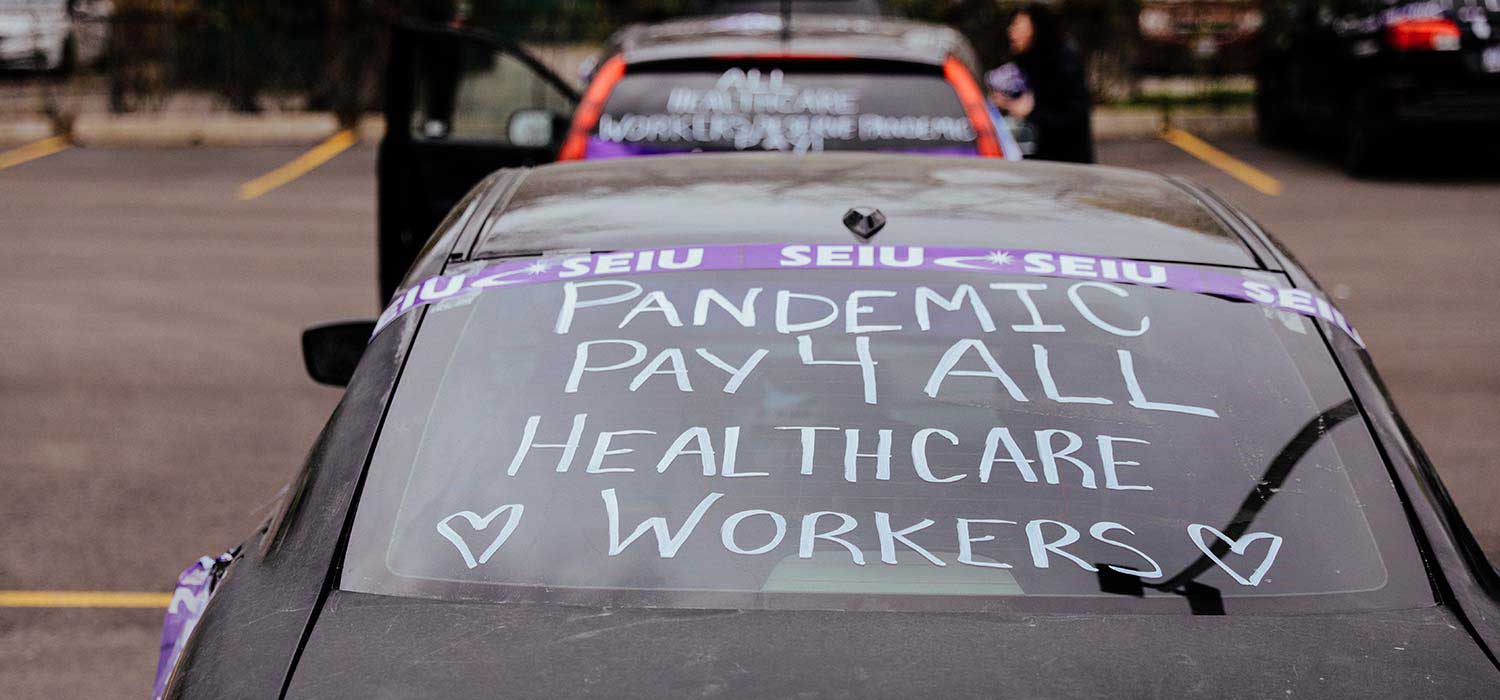Since the Ontario government announced their Pandemic Pay at the end of April, we have been in constant discussions with them regarding positions that were excluded, including MDRD, hospital ward and unit clerks, clerical staff, and recreational staff/activity coordinators.
We asked you to sign our petition, which over 8000 of you did, as well as write your local MPPs demanding to include all healthcare workers in Pandemic Pay.
I am pleased to let you know that today, the Ontario government has finally listened to all of us, significantly expanding the eligibility for Pandemic Pay. You can find the full list of eligible positions below.
As a reminder, this pandemic pay is being funded roughly 75% by the federal government, with the provincial government providing the rest. The funding will be sent to employers in early June, and we are putting pressure on them to pay that money to you as soon as possible, as we know so many of you are relying on it. As a reminder, Pandemic Pay is retroactive to April 24, so make sure you are logging your hours to make sure you are paid every penny you are owed.
While today’s expansion of Pandemic Pay is a step in the right direction, we continue to lobby the government daily for the necessary improvements you need to be safe and supported. We are proud to fight on your behalf, thank you for all you continue to do on the frontlines.
Sincerely,
![]()
Sharleen Stewart
President, SEIU Healthcare
To be eligible for pandemic pay you must be an eligible worker (full-time, part-time or casual) who works in an eligible workplace providing in-person publicly-funded services.
Eligible workplaces
- All hospitals in the province providing publicly-funded services, including small rural hospitals, post-acute hospitals, children’s hospitals and psychiatric hospitals
- Home and community care settings, including community-based mental health and addictions
Eligible workers
- Personal support workers including home support workers, home help workers, community support workers, residential support workers, homemakers
- Registered nurses
- Registered practical nurses
- Nurse practitioners
- Attendant care workers
- Auxiliary staff, including:
- porters
- cooks, food service, food preparation
- custodians, cleaning/maintenance and environmental services staff, sterilization and reprocessing staff
- housekeeping
- laundry
- security, screeners
- stores/supply workers, receivers, department attendants
- hospital ward and unit clerks
- client facing reception/administrative workers, schedulers, administrative staff working in home and community care or community-based mental health and addictions
- community drivers
- community recreational staff/activity coordinators
- Developmental services workers
- Mental health and addictions workers: counsellors/therapists, case workers and case managers, intake/admissions, peer workers, residential support staff, Indigenous/cultural service workers
- Respiratory therapists in hospitals and in the home and community care sector
- Paramedics
- Public health and infection prevention and control nurses
Long-term care – Eligible workplaces
- Long-term care homes (including private, municipal and not-for-profit homes)
Eligible workers
- All non-management publicly funded employees and workers in eligible workplaces (full-time, part-time and casual)
Retirement homes – Eligible workplaces
- Licensed retirement homes
Eligible workers
- All non-management employees working on site in licensed retirement homes (full-time, part-time and casual), excluding hours worked to provide extra care services purchased privately
Social services – Eligible workplaces
- Homes supporting people with developmental disabilities
- Intervenor residential sites
- Indigenous healing and wellness facilities and shelters
- Shelters for survivors of gender-based violence and human trafficking
- Youth justice residential facilities
- Licenced children’s residential sites
- Directly operated residential facility – Child and Parent Resource Institute
- Emergency shelters
- Supportive housing facilities
- Respite and drop-in centres
- Temporary shelter facilities, such as re-purposed community centres or arenas
- Hotels and motels used for self-isolation and/or shelter overflow
Eligible workers
- Direct support workers (such as developmental service workers, staff in licenced children’s residential sites, intake and outreach workers)
- Clinical staff
- Housekeeping staff
- Security staff
- Administration personnel
- Maintenance staff
- Food service workers
- Nursing staff

